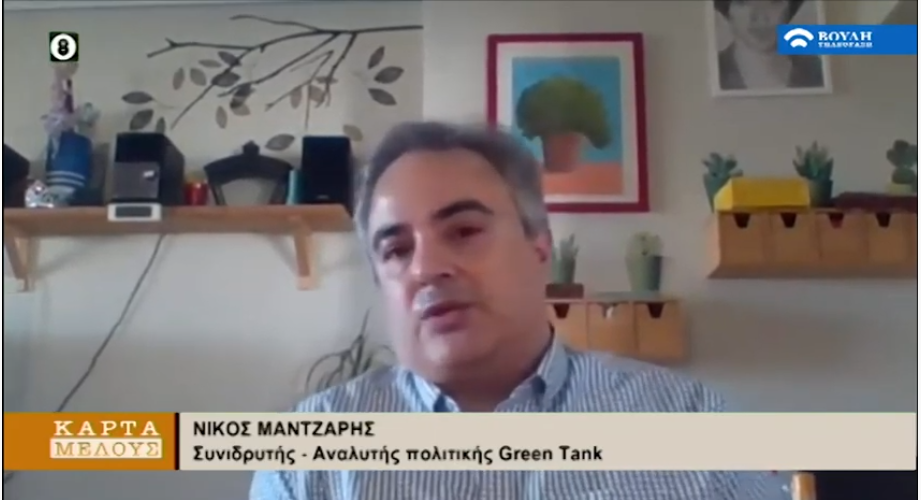Participation of Νikos Mantzaris in a TV discussion on the reactions to wind farms hosted by Matroni Dikaiakou’s “Karta Melous” (Member’s Card) show on the Hellenic Parliament’s broadcaster.
Nikos Mantzaris first commented on the significance of developing wind energy in Greece for a variety of reasons:
- To get rid of the expensive and polluting lignite and of the fossil gas and of oil for the electrification of the islands.
- To effectively contribute to the European climate neutrality goal by 2050.
- To reduce energy dependence on imported fossil fuels.
- To reduce electricity prices in the future since the electricity producing costs from wind energy has long been lower than that of fossil fuels.
He noted however, that the response to the climate crisis should not – under any circumstances – be to the detriment of biodiversity and in particular the protected birds of our country. This is in fact the spirit of the revised European Commission guidance document on wind farms in Natura 2000 sites that was recently presented in Greece, as well as of the recent negative opinion from the competent department of the Ministry of Environment and Energy regarding the planned wind farm on 14 Aegean islets that are a refuge for many protected bird species.
Unfortunately, the development of wind energy and renewable energy, in general, in Greece has been accompanied by a series of errors. From the Special Spatial Plan for renewable energy sources completed in 2008, to the ever-changing institutional framework aimed at promoting renewable energy and the way in which the island grid connections were designed. These errors combined with lack of consultation with the local communities and misinformation that often goes to extremes, have led to an explosive mix of resistance to renewable energy and wind energy, in particular. As a consequence, Greece’s energy mix is at risk of being overtaken by fossil gas and hydrocarbon extraction, a prospect which is contrary to any logic.
Nonetheless, mistakes of the past can be corrected and the issue of proper siting of wind farms can be resolved. Such solutions will benefit the environment, local communities and the national economy. In other countries facing similar challenges of siting wind farms, various methodologies have been applied so that wind farms be located in those areas that have high wind potential but are less sensitive to birds. Such methodologies must be applied during the design of the new Special Spatial Plan for renewable energy. Nikos Mantzaris reiterated the Green Tank’s proposal for the Ministry of Environment and Energy to establish a committee with the participation of all stakeholders to oversee the development of the new Spatial Plan.
The show hosted in the studio Konstantinos Aravosis, General Secretary of Natural Environment and Water at the Ministry of Environment and Energy and Apostolis Kaltsis, from the Hellenic Ornithological Society. Live and recorded interventions were made also by representatives of the Hellenic Wind Energy Association (ELETAEN), citizens’ movements from Agrafa, Andros, Evia and Sifnos, as well as the environmental NGOs Hellenic Society for the Protection of Nature, Greenpeace and WWF Greece.
The show aired on Saturday, July 18, 2020.
You can watch the show (in Greek) here:



















































































































































































































































































































